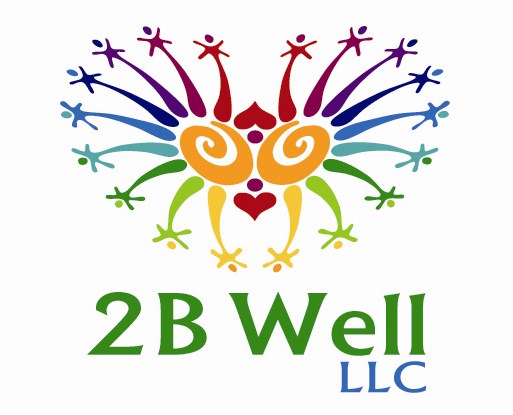

 |
Herbalist Susan CoombsMission: "IMPROVE THE QUALITY OF LIFE"Sue's hometown of Canterbury is located in the Northeast corner of Connecticut. She has a BA in Biological Sciences from UCONN and is a graduate of the East West School of Herbology formed by Michael Tierra. Graduate of Connecticut Center for Massage Therapy in 2010 Board Certified Memeber of National Certification Board for Therapeutic Massage NCBTMB.org American Massage Therapy Association Member since 2010 AMTAMassage.org or Susans AMTA page at here Member of the American Herbalist Guild (AHG) Susan began her career as a molecular biologist with a pharmaceutical research and development company located in Connecticut. She created her own company to enable her to be home with her three children. In her spare time you'll find Susan skiing down the slopes of Pico |
The herbal tradition is thousands of years old and is rooted in cultures across the globe. Still today, eighty percent of the world's population uses herbs as the main form of medicine. Herbalism, sometimes called the simpler's art, identifies a common bond with folk practice based on empirical evidence of "what works". Herbs can play an important role in cleansing and balancing the body- not because they have magical powers, but because they have chemical components from natural sources readily assimilable by the body. They can furnish elements missing in the everyday diet. They can also work wonders on the human body that we haven't yet explained scientifically.
There is a general lack of support by the American scientific and medical communities. As Karen Bradstreet so eloquently explained in her book Overcoming Infertility Naturally "Why don't the powers that be conduct more studies on the benefits of herbs? The answer is mostly a matter of economics. Herbs are naturally occurring substances, and naturally occurring substances cannot be patented. Because it can take millions of dollars to research a plant extensively enough to prove that it has medicinal benefits- the procedure necessary to receive FDA approval to make medicinal claims for an herb- and the plant itself cannot be patented, researchers could never charge the exorbitant fees to market an herb that would be necessary to recap their research dollars. So generally, they pursue substances they can patent- especially in the United States. Patentability is one of the main reasons scientists make synthetic versions of plant substances. (Bradstreet, p.60)
Still, more than half our modern medicines are plant based. Aspirin- for example, is based on salicylic acid, which is found in white willow bark. Plus, the fact that plants have chemical compounds which can work wonders on the human body is indisputable. The current effort on the part of the FDA to have some herbs and vitamins available only by prescription is point-blank evidence that they work. It is also evidence that the medical field feels threatened by the growing number of people turning to natural health care, despite claims that it is "only trying to protect us"- from natural substances that have been freely used for thousands of years. (Bradstreet, p. 60).
Whole herbs have many benefits not found in their synthetically isolated compounds. Naturalists believe when you isolate medicinal compounds from a plant, you lose the balancing qualities of the plant's other compounds which prevent side effects. Hence, drugs almost always have side effects, whereas herbs rarely do. Drugs often create serious side effects and even death. Herbs, when used with a little intelligence, respect, and common sense, rarely have side effects. The amount of reputable literature available on herbs makes their safe use almost guaranteed. (Bradstreet, p.61).
I, personally, used to suffer from allergies year round. I took Claratin D-24, and I also had started to supplement that with homeopathic items such as Isocort, Quercetin, and I used Naphcon A for my itchy/ watery eyes. I often got sick with colds/flus about every two weeks. I would alternate a few weeks of good health and then another week of being ill. I'm not sure exactly what my allergies were, but I knew that dust, smoke, cat dander, and cut grass were some of my biggest problems. These often made my eyes swell shut, I would get migraines, and I often felt very tired.
I started taking the home study herb class by the East West School of Herbology run by Michael Tierra. While making small changes in my diet I started using herbal remedies to assist with symptoms and help to strengthen my weak organs. I changed my diet from one of predominantly processed carbohydrate, refined sugar, etc. to a whole grain (rice, buckwheat, barley, amaranth, couscous, millet, etc.) more energetically balanced diet. I still eat meat, but I cut back my consumption to 2-4 ounces of red meat, 4-6 ounces of white meat, or 6-8 ounces of fish per day. I also cut out refined sugars, all processed foods, dairy, and caffeine. I did small fasts to help hasten detoxification. I should add that clearing more than 30 years of built up toxins will take a long time to fully disappear.
Long story short, I have not taken any prescriptions since, and I feel better than I have as long as I can remember. I have not really gotten sick since. My allergies are essentially gone. I do not get migraines any more. I use herbal remedies at the onset of a cold/flu and I am fine the next day. I also use my salves and oils for minor things like cuts, scrapes, bug bites etc.. I am also working on other more deeply seeded ailments with herbal remedies that will help to tonify my body and get me back to what I would call perfect health.
Copyright 2003 Herbal Heaven - All Rights Reserved